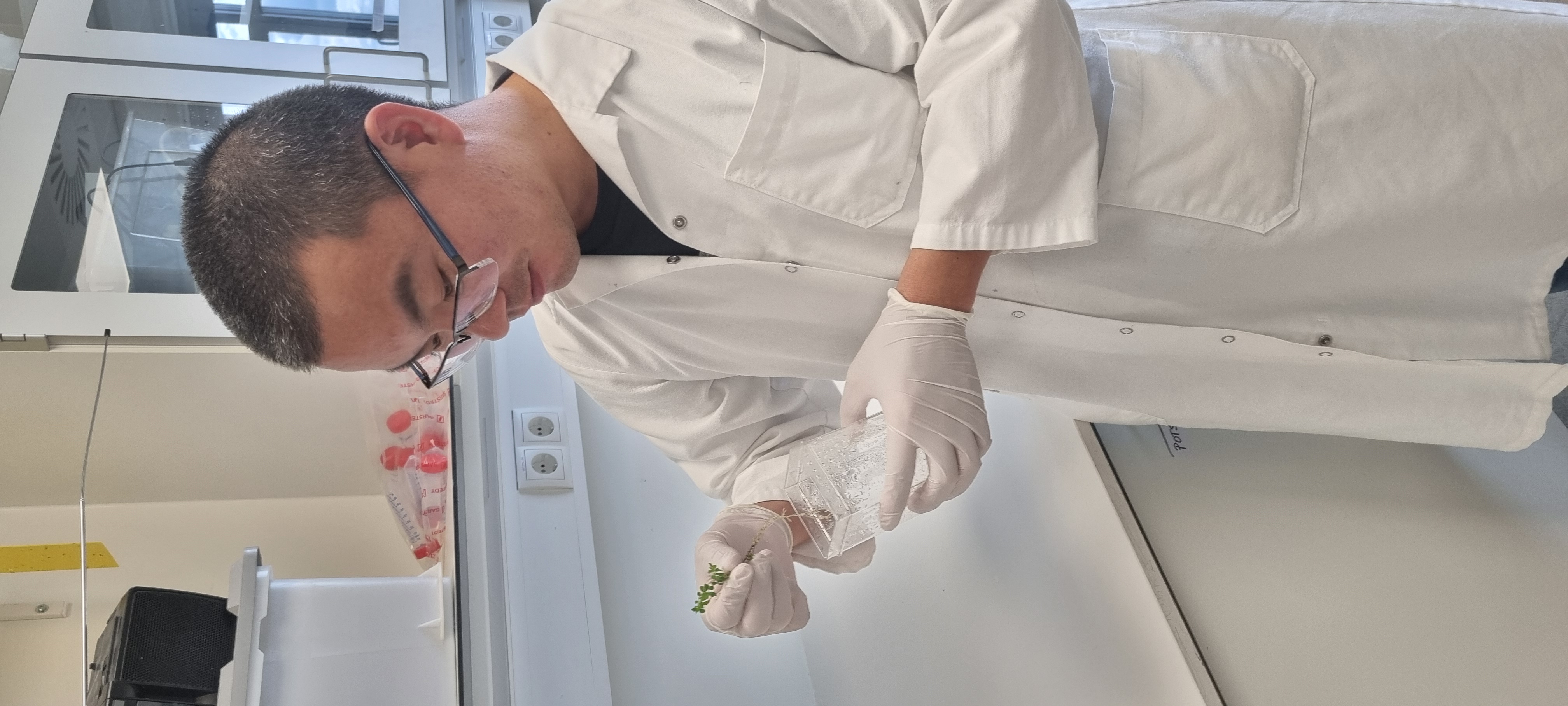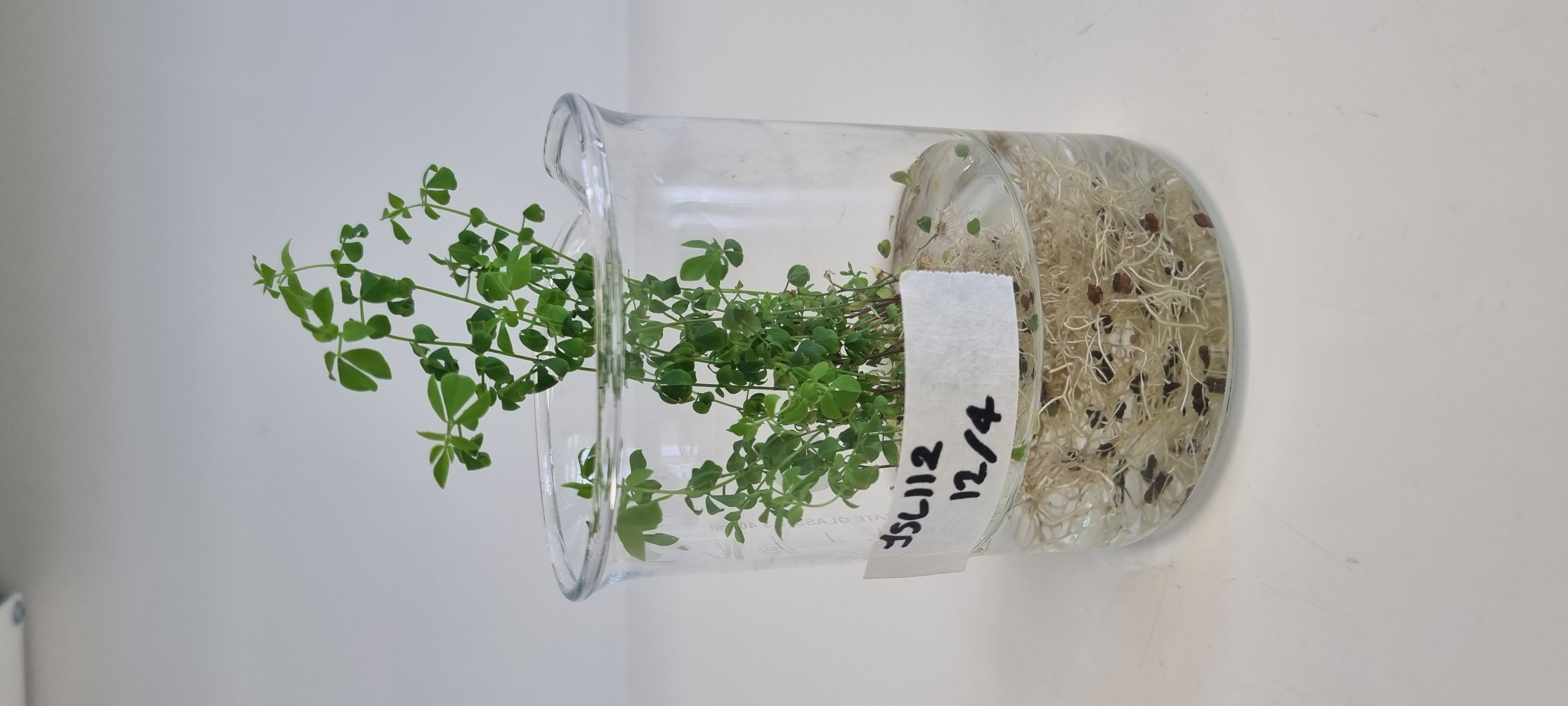Groundbreaking discovery: Zinc can make crop yields more climate-resilient
Climate change, drought, increased temperature and other stressors challenge agricultural sustainability. Researchers have now made an unexpected discovery: zinc plays a pivotal role in the plant response to abiotic stress. This groundbreaking discovery not only sheds light on the intricate mechanisms of plant growth but also holds promise for revolutionizing crop resilience, especially in legume-based agriculture.



Researchers have discovered that zinc plays a crucial role in the nitrogen fixation process of legumes. This finding, along with the transcriptional regulator Fixation Under Nitrate (FUN), could revolutionize legume-based agriculture by optimizing crop efficiency and reducing reliance on synthetic fertilizers. By understanding how zinc and FUN regulate nitrogen fixation, researchers might be able to enhance nitrogen delivery, improve crop yields, and promote more sustainable agricultural practices.
Legume crops can engage in symbiotic interaction with rhizobia that fixes atmospheric nitrogen in root nodules. However, nodules are sensitive to environmental factors like temperature, drought, flooding, soil salinity and high soil nitrogen concentration.
Researchers from Aarhus University, in collaboration with Polytechnic University of Madrid and European Synchrotron Radiation Facility in France, have discovered that legumes use zinc as a secondary signal to integrate environmental factors and regulate nitrogen fixation efficiency. In the study published in Nature, the researchers discovered that FUN is a novel type of zinc sensor, which decodes zinc signals in nodules and regulates nitrogen fixation.
“It's truly remarkable to discover zinc's role as a secondary signal in plants. It is a vital micronutrient, and it has never been considered as a signal before. After screening over 150,000 plants, we finally identified the zinc sensor FUN, shedding light on this fascinating aspect of plant biology,” Assistant Professor Jieshun Lin, the study’s first author, explains.
In this study the researcher identifies that FUN is an important transcription factor that control nodule breakdown when soil nitrogen concentrations are high: “FUN is regulated by a peculiar mechanism that monitor the cellular zinc levels directly and we show that FUN is inactivated by zinc into large filament structures and liberated into the active form when zinc levels are low,” Professor Kasper Røjkjær Andersen explains.
From an agricultural perspective, continued nitrogen fixation could be a beneficial trait that increases nitrogen availability, both for the legume and for co-cultivated or future crops that rely on the nitrogen left in the soil after legumes are grown. This helps lay the foundations for future research that provides new ways for us to manage our farming systems and reduce the use of nitrogen fertilizer and reduce its impact on the environment.
The implications of this research are significant. By understanding how zinc and FUN regulate nitrogen fixation, researchers are developing strategies to optimize this process in legume crops. This could lead to increased nitrogen delivery, improving crop yields and reducing the need for synthetic fertilizers, which have environmental and economic costs.
Researchers are now investigating the mechanisms of how zinc signals are generated and decoded by FUN. They are looking forward to applying these new discoveries to legume crops such as faba bean, soybean and cowpea.
SUPPLEMENTARY INFORMATION, INCLUDING CONTACT INFORMATION
We strive to ensure that all our articles live up to the Danish universities' principles for good research communication. Against this background, the article is supplemented with the following information:
Study type
Experiment
External funding
This work was supported by the project Enabling Nutrient Symbioses in Agriculture (ENSA), that is funded by Bill & Melinda Gates Agricultural Innovations (INV- 57461), the Bill & Melinda Gates Foundation and the Foreign, Commonwealth and Development Office (INV-55767), the Carlsberg Foundation grant (CF21-0139) and the European Research Council (ERC) under the European Union’s Horizon 2020 research and innovation programme (grant agreement No. 834221).
Conflicts of interest
Jieshun Lin, Peter K. Bjørk, Jens Stougaard, Kasper R. Andersen, and Dugald Reid are inventors on a filed patent that captures these discoveries.
The scientific article
Zinc mediates control of nitrogen fixation via transcription factor filamentation.
Jieshun Lin1#*, Peter K. Bjørk1#, Marie V. Kolte1, Emil Poulsen1, Emil Dedic1, Taner Drace13, Stig U. Andersen1, Marcin Nadzieja1, Huijun Liu1, Hiram Castillo-Michel2, Viviana Escudero34, Manuel
González-Guerrero34, Thomas Boesen1, Jan Skov Pedersen5, Jens Stougaard1, Kasper R. Andersen1*, and Dugald Reid6,7*.
#equal contribution
*corresponding author
1 Department of Molecular Biology and Genetics, Aarhus University, Aarhus, Denmark.
2 ID21 Beamline, European Synchrotron Radiation Facility, Grenoble, France.
3 Centro de Biotecnología y Genómica de Plantas (UPM-INIA/CSIC), Universidad Politécnica de Madrid, Pozuelo de Alarcón, Spain.
4 Escuela Técnica Superior de Ingeniería Agronómica, Alimentaria y de Biosistemas. Universidad Politécnica de Madrid, Madrid, Spain.
5 Department of Chemistry and Interdisciplinary Nanoscience Center (iNANO), Aarhus University, Aarhus, Denmark.
6 La Trobe Institute for Sustainable Agriculture and Food (LISAF), La Trobe University, Melbourne, Victoria, Australia.
7 Department of Animal, Plant and Soil Sciences, School of Agriculture Bioscience and Environment, La Trobe University, Melbourne, Victoria, Australia
Nature: https://www.nature.com/articles/s41586-024-07607-6
More information
Assistant Professor Jieshun Lin
Department of Molecular Biology and Genetics
Aarhus University
jslin@mbg.au.dk
Professor Kasper Røjkjær Andersen
Department of Molecular Biology and Genetics
Aarhus University
kra@mbg.au.dk
Lecturer Dugald Reid
Department of Animal, Plant and Soil Sciences
La Trobe University
Dugald.Reid@latrobe.edu.au
